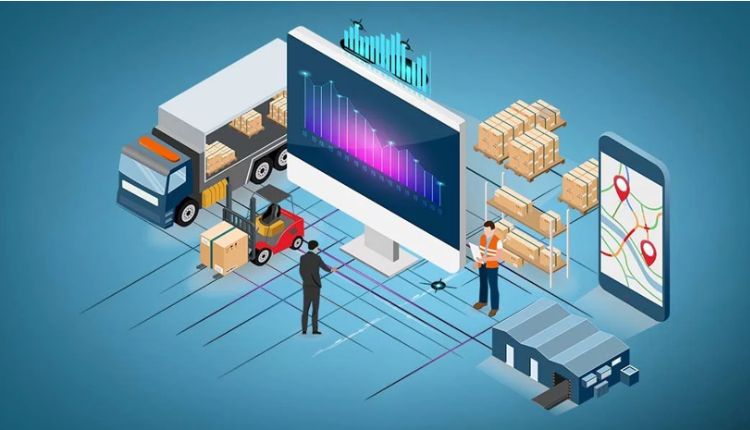As we move further into the digital age, the significance of technology in optimizing operations and enhancing productivity continues to rise. Nowhere is this more evident than in the logistics sector, where technological innovations like containerization and freight forwarding software have redefined the norms of efficiency and productivity.
The synergy between these two tools is a testament to the transformative power of integrating physical and digital strategies. By leveraging the standardization provided by containerization with the automation and data analysis capabilities of freight forwarding software, logistics providers are capable of managing an increasingly complex and global supply chain.
The adoption of these innovative technologies is not just anecdotal; the statistics reflect their growing prevalence and influence in the logistics sector. According to a recent study by Mordor Intelligence, the logistics automation market is projected to reach USD 121.1 billion by 2026, growing at a CAGR of 12.3% from 2021 to 2026. This indicates the pace at which automation, powered by the likes of containerization and freight forwarding management software, is being adopted. Moreover, a report by Invesp suggests that companies utilizing advanced analytics have seen a 10-20% reduction in their annual supply chain costs. These figures highlight the tangible impact of technology on enhancing efficiency and reducing costs in logistics operations.
Table of Contents
Decoding the Role of Technology in Logistics
Technological advancements have made it possible for the logistics sector to grapple with the rising complexities of a globalized economy. Several tech-led solutions, such as the Internet of Things (IoT), Artificial Intelligence (AI), robotics, and blockchain, among others, are revolutionizing the way logistics is being managed and operated today.
Internet of Things (IoT): IoT allows real-time tracking of shipments. It enables logistics providers to keep track of various parameters like location, temperature, humidity, and more. IoT-powered sensors can help in reducing the spoilage of perishable goods, ensure the quality of sensitive products, and improve overall supply chain visibility.
Artificial Intelligence (AI): AI can significantly enhance the decision-making capabilities of logistics providers. Through predictive analytics, AI can provide foresight into potential disruptions or delays, allowing for better planning and management. AI also powers automation in logistics, from sorting packages to managing warehouse operations, which drastically improves efficiency and reduces human errors.
Robotics: Automation and robotics are key to handling the vast volumes of goods flowing through the logistics networks. Robots are being used for picking and packing in warehouses, loading and unloading cargo, and even delivering goods to the customer’s doorstep, reducing the time and cost associated with these processes.
Blockchain: The transparency and security that blockchain technology brings to the table have massive implications for logistics. It can streamline transactions, reduce fraud, and ensure a secure and transparent chain of custody for goods, all of which can greatly improve efficiency and reliability in the supply chain.
Fostering a Symbiotic Relationship Between Technology and Logistics
To truly harness the potential of these technologies, it is imperative for the logistics sector to embrace a culture of continuous learning and adaptation. Logistics providers must be ready to invest in the necessary infrastructure and upskill their workforce to effectively use these new tools.
Integrating these technologies is not without its challenges. Issues related to data privacy, cybersecurity, and regulatory compliance cannot be ignored. However, with the right approach, these challenges can be effectively managed, and the benefits far outweigh the potential risks.
Technology can streamline logistics processes, improve service quality, and enable companies to provide more personalized services. Doing so, not only improves efficiency but also enhances the overall customer experience, which is a key differentiator in today’s highly competitive market.
Moreover, the environmental impact of logistics operations can also be mitigated with the help of technology. For instance, AI can optimize routes for delivery vehicles to reduce fuel consumption, and IoT can improve resource utilization, reducing waste.
The future of logistics is undeniably intertwined with technology. While we’ve already seen significant advancements, the sector is poised for even more transformation as we continue to innovate and push the boundaries of what’s possible.
Embracing technology is no longer optional for logistics providers. It is, in fact, indispensable. As we venture further into the digital age, the companies that will thrive are those that are able to adapt to these changes, leverage the power of technology to enhance their operations, and ultimately provide a better, more efficient service to their customers. The future of logistics, therefore, is not just about embracing technology, but about embracing change, and with it, the opportunities that lie ahead.
Logitude World provides freight forwarders with advanced freight forwarding software to
manage all operations on one digital platform and deliver superior freight services.
